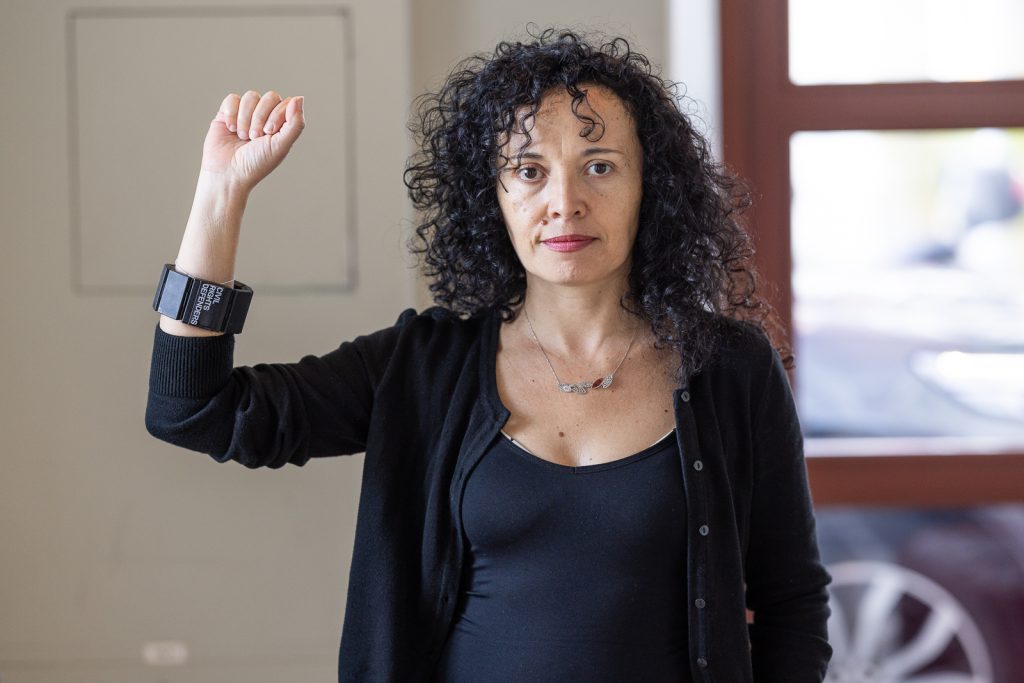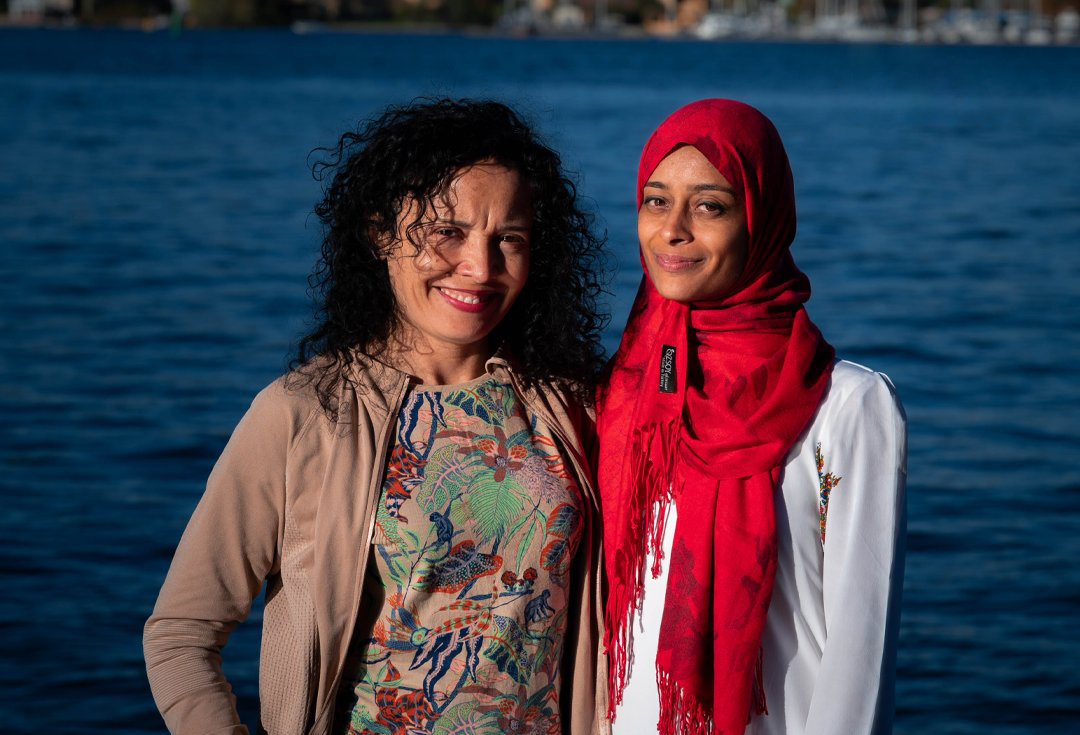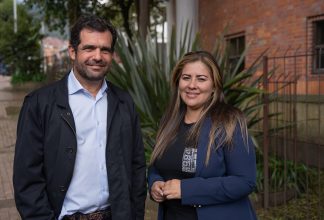“Natalia Project is a sense of security when you can’t communicate with anyone” – Angela Maldonado

Human rights defenders who work to promote and protect human rights in their communities across the world are often threatened and attacked to stay silent. 10 years ago, Civil Rights Defenders launched the Natalia Project, the world’s first assault alarm and community-based security system for human rights defenders. In the event of an attack, participants in the project can send out a distress signal so they can be located quickly and get help.
“I fight for environmental rights, for the young people and children in the Amazon, for civil rights in the Colombian and Peruvian Amazon.”
Colombian Natalia Project participant Angela Maldonado is the head of the environmental organisation Entropika, located in the Colombian town of Letícia by the Amazon River. The organisation works against environmental degradation, illegal wildlife trafficking, and threats to indigenous communities.
The danger of defending the Amazon’s future
Colombia is one of the deadliest countries in the world for activists. Working to protect human rights and the environment in the heart of the Amazon rainforest comes with a huge risk. As recently as last autumn, the human rights defender known to Civil Rights Defenders, William Pedraza, was murdered in Letícia. Angela herself has received several death threats due to her activism.
“I filed a law case against people trading night monkeys for biomedical research. I won. They sued me. Now, I have three law cases against me for slander and similar crimes. Of course, it’s not slander because I have evidence. They do it for intimidation. And it is dangerous to talk to the authorities about the illegal trade of wildlife for tourism. It’s the same people that have the tourist businesses and the transport businesses. They are politicians. They have the money, and they have all the resources, and we don’t, so it is very dangerous for us to do fieldwork.”
“They sent me a death threat saying that if I kept doing what I was doing, they were going to kill me and everyone in my team. They said: ‘Everyone, we are going to kill them all’.”
“After years of receiving all these intimidations, you get used to it. When I got another death threat, I just thought, ‘Ah, OK, another one. Another threat, another intimidation.’ We’ve started to normalise these kinds of situations.”

“I tried to quit my job many times. I tried going to Bogota instead and then I was feeling miserable, wondering what I am doing here – I must go back and keep fighting. It’s love for the forest. It’s love for wildlife and especially love for people because animals cannot speak. We are their voices. I feel like it’s my obligation and my mission in this life. If we don’t do it, who else is going to do it?”
The Natalia Project device is a lifeline in times of need
“I work in the middle of the forest and sometimes I don’t even have a mobile connection. The only way that I can get to Letícia is by plane or by river.”
“So, you are in the middle of the forest or you are in the middle of the river and if something happens to you, you cannot communicate with anyone.”
Being part of a supportive network like the Natalia Project has been crucial in facing the dangers of the Amazon. In the case of an attack, the alarm is activated, and a distress signal goes off. Civil Rights Defenders and a network of human rights defenders can start investigating the situation within minutes.
“The Natalia Project is a way to feel like we have someone on the other side anytime, even at night. I know that there is always someone there. It’s a sense of security, that someone is going to help me if something happens. I truly hope I won’t use it, but it feels great to have it.”
Support our work
You can support brave human rights defenders like Angela by supporting our work with assault alarm and community-based security system for human rights defenders who are in danger via the Natalia Project. Civil Rights Defenders are ready to act around the clock when the alarm goes off.
Support our work with the Natalia Project

